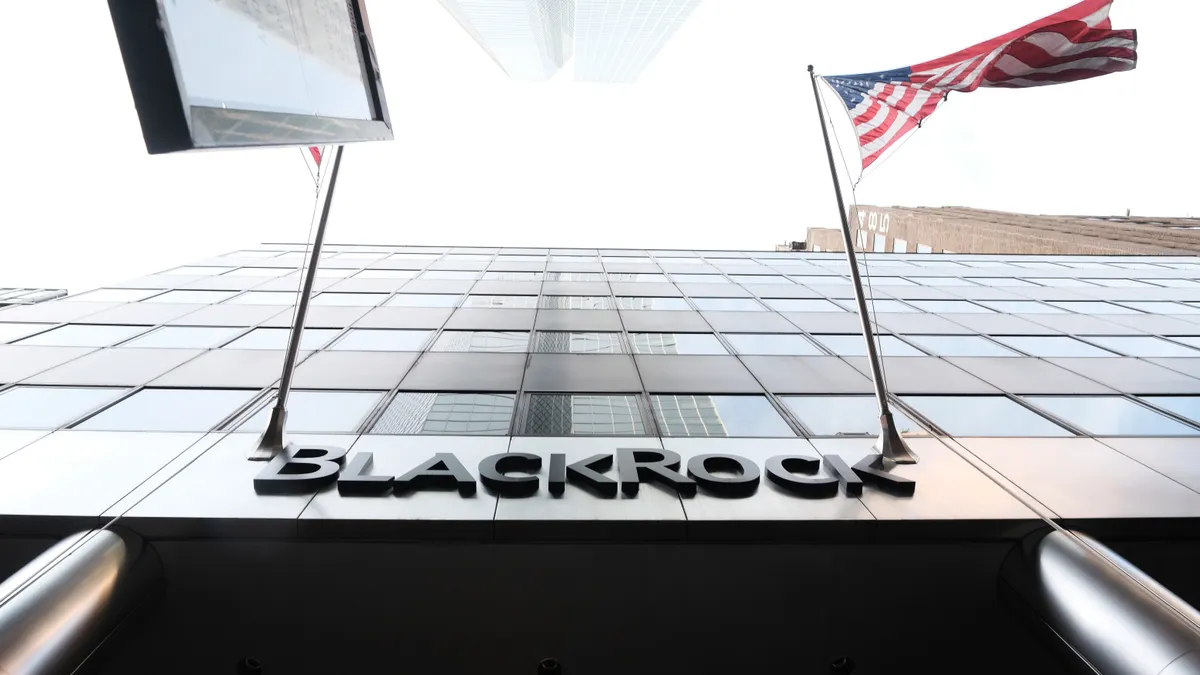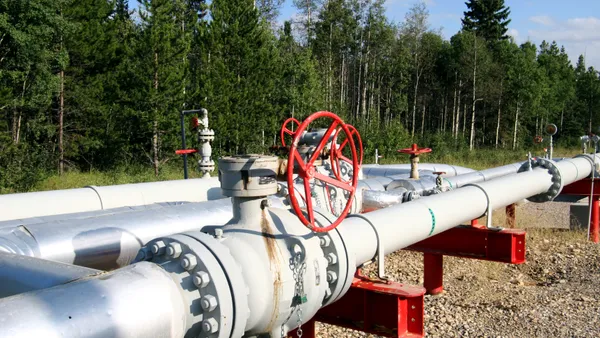Dive Brief:
- BlackRock, the nation’s largest asset manager, acquired Global Infrastructure Partners Friday in a deal valued around $12.5 billion, which includes $3 billion in cash and 12 million BlackRock shares valued around $9.5 billion collectively at Thursday’s close. The deal is expected to close in Q3 of 2024.
- The deal combine’s GIP’s $100 billion in assets under management, the largest global independent infrastructure manager by AUM, and its energy, transport, water, waste and digital infrastructure focused portfolio with BlackRock’s $50 billion infrastructure platform.
- The acquisition, which Bloomberg said is the largest in over 10 years for the Larry Fink-led company, is a bet on the infrastructure market. The asset manager cited “a movement toward decarbonization and energy security in many parts of the world” as a reason for the deal.
Dive Insight:
BlackRock’s betting the $1 trillion infrastructure market continues to grow as global governments look to transition from fossil fuels, following last month’s landmark agreement at COP28. The company said in the press release it projects the sector to be “one of the fastest growing segments of private markets” in the coming years.
Fink, BlackRock’s CEO and chair, said the company believes both physical and digital infrastructure expansion will continue to accelerate as global governments look to increase their respective domestic industrial capacity, ramp up energy independence and accelerate onshore or near-shore production in critical sectors.
“Infrastructure is one of the most exciting long-term investment opportunities, as a number of structural shifts re-shape the global economy,” Fink said in the release. “Policymakers are only just beginning to implement once-in-a-generation financial incentives for new infrastructure technologies and projects.”
The new infrastructure team will be led by GIP CEO and chair Bayo Ogunlesi, along with four of his other founding partners. After the transaction closes, BlackRock will also appoint Ogunlesi to its board of directors at the next regularly scheduled board meeting, the companies announced.
“Investors have adopted private infrastructure investing for its ability to provide stable cash flows, less correlated returns, and a hedge against inflation,” Ogunlesi said in the release. “Global corporat[ions] have turned to private infrastructure as a fast innovator and a more commercially agile owner of infrastructure assets that aren't core to their commercial businesses.”
Ogunlesi became a billionaire through the deal, as Bloomberg now estimates his net worth to be $2.3 billion. He projects the two companies can create “the world’s premier infrastructure investment firm” and envisions it to be a “one-stop infrastructure solutions provider” for global corporations and the public sector.
BlackRock said the combined $150 billion infrastructure business will look to deliver “holistic infrastructure expertise” as renewed global investments in logistical hubs increases to support the supply chain and demand for upgraded digital infrastructure, alongside the movement to get to net zero greenhouse gas emissions by 2050.
The infrastructure platform will look to mobilize capital for infrastructure projects, as investors have pulled back amid higher interest rates, and capitalize on large government deficits by also focusing on investing through public-private partnerships.
Fink’s company had already identified the infrastructure sector as a “mega force” that will affect private markets this year, and said the asset class “is having a moment,” last month in its 2024 Private Markets Outlook. The company said long-term structural societal changes favor investing in infrastructure in both the coming years and decades.
“The world is in transition, requiring a reconfigured energy system and investment across all sectors to decarbonize,” the report said.
The deal came just three days after BlackRock told employees it was laying off 3% of its workforce, amounting to roughly 600 job cuts. Reuters reported last week the layoffs will not be concentrated among any single team, and the company expects to have net workforce growth this year.















